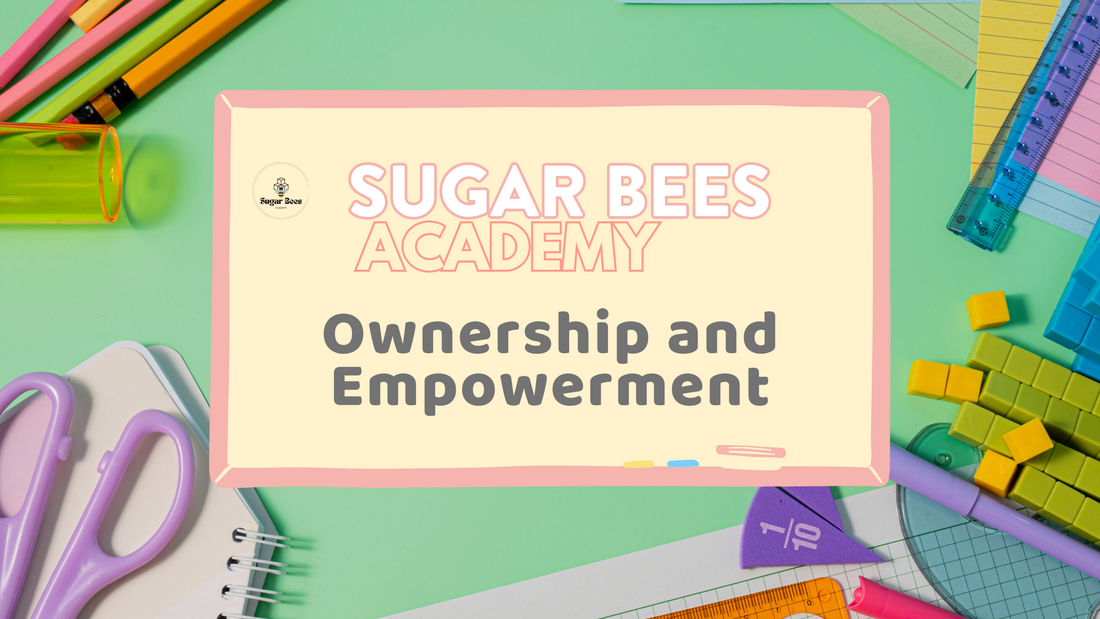
Ownership and Empowerment: Encouraging Students to Take Charge of Their Education
Share
Introduction
Empowering students to take ownership of their education is a transformative approach that can lead to greater engagement, motivation, and academic success. When students feel in control of their learning journey, they are more likely to develop critical thinking skills, self-discipline, and a lifelong love for learning. At Sugar Bees Academy, we believe in fostering a learning environment where students are encouraged to take charge of their education. This blog post explores the benefits of student ownership and provides practical strategies for empowering students in the classroom.
The Benefits of Student Ownership
1. Increased Motivation and Engagement
When students take ownership of their education, they are more motivated and engaged. They see the relevance of their studies to their personal goals and interests, which makes learning more meaningful. This increased motivation leads to greater participation and effort in their academic pursuits.
2. Development of Critical Thinking and Problem-Solving Skills
Ownership in learning encourages students to think critically and solve problems independently. As they take responsibility for their education, they learn to analyze information, evaluate different perspectives, and develop solutions to challenges. These skills are essential for academic success and future career opportunities.
3. Enhanced Self-Discipline and Time Management
Empowered students are more likely to develop self-discipline and effective time management skills. When they take charge of their learning, they learn to set goals, prioritize tasks, and manage their time efficiently. These skills are crucial for success in school and beyond.
4. Greater Sense of Achievement and Confidence
Taking ownership of their education gives students a sense of achievement and boosts their confidence. As they see the results of their hard work and dedication, they develop a stronger belief in their abilities. This confidence helps them tackle more challenging tasks and persist in the face of difficulties.
Strategies for Encouraging Student Ownership
1. Set Clear Expectations and Goals
Setting clear expectations and goals is the first step in encouraging student ownership. Teachers should communicate their academic standards and expectations clearly, and work with students to set individual learning goals. These goals should be specific, measurable, achievable, relevant, and time-bound (SMART).
2. Provide Choices and Autonomy
Giving students choices in their learning process promotes a sense of autonomy and ownership. Teachers can offer options for assignments, projects, and activities, allowing students to select those that align with their interests and strengths. This choice fosters engagement and motivation.
3. Foster a Growth Mindset
Encouraging a growth mindset helps students view challenges as opportunities for growth rather than obstacles. Teachers should praise effort, persistence, and resilience, and emphasize that intelligence and abilities can be developed through hard work and dedication. This mindset empowers students to take risks and learn from their mistakes.
4. Create a Collaborative Learning Environment
A collaborative learning environment encourages students to take ownership of their education while working with their peers. Group projects, peer reviews, and collaborative activities help students learn from each other and take responsibility for their contributions. This collaboration fosters a sense of community and shared ownership of the learning process.
5. Use Formative Assessments and Feedback
Regular formative assessments and feedback help students monitor their progress and take ownership of their learning. Teachers should provide constructive feedback that highlights strengths and areas for improvement, and encourage students to reflect on their performance. Self-assessment and peer assessment can also be valuable tools for promoting ownership.
6. Encourage Reflection and Self-Assessment
Reflection and self-assessment are powerful strategies for encouraging students to take charge of their education. Teachers can incorporate reflective activities, such as journals, portfolios, and self-evaluation checklists, into their lessons. These activities help students analyze their learning experiences, identify areas for growth, and set new goals.
The Role of Parents in Supporting Student Ownership
Parents play a crucial role in supporting their child's journey towards ownership and empowerment in education. Here are some ways parents can contribute:
1. Foster a Positive Attitude Towards Learning
Parents can foster a positive attitude towards learning by showing interest in their child's education and celebrating their achievements. Encouraging curiosity, asking questions, and providing a supportive home environment can help children develop a love for learning.
2. Provide Resources and Support
Providing resources and support at home can help students take charge of their education. Parents can create a conducive study environment, provide access to educational materials, and offer guidance and encouragement. This support helps students feel empowered and capable of managing their learning.
3. Encourage Independence and Responsibility
Encouraging independence and responsibility at home reinforces the importance of ownership in education. Parents can give their children age-appropriate responsibilities, such as managing their homework, setting study schedules, and making decisions about their learning activities. This independence builds self-discipline and confidence.
Conclusion
Empowering students to take ownership of their education is essential for fostering a love for learning and preparing them for future success. By setting clear expectations, providing choices, fostering a growth mindset, creating a collaborative environment, using formative assessments, and encouraging reflection, teachers can help students take charge of their learning journey. Parents also play a vital role in supporting this process by fostering a positive attitude, providing resources, and encouraging independence. At Sugar Bees Academy, we are committed to creating an environment where students are empowered to take ownership of their education and achieve their full potential.



